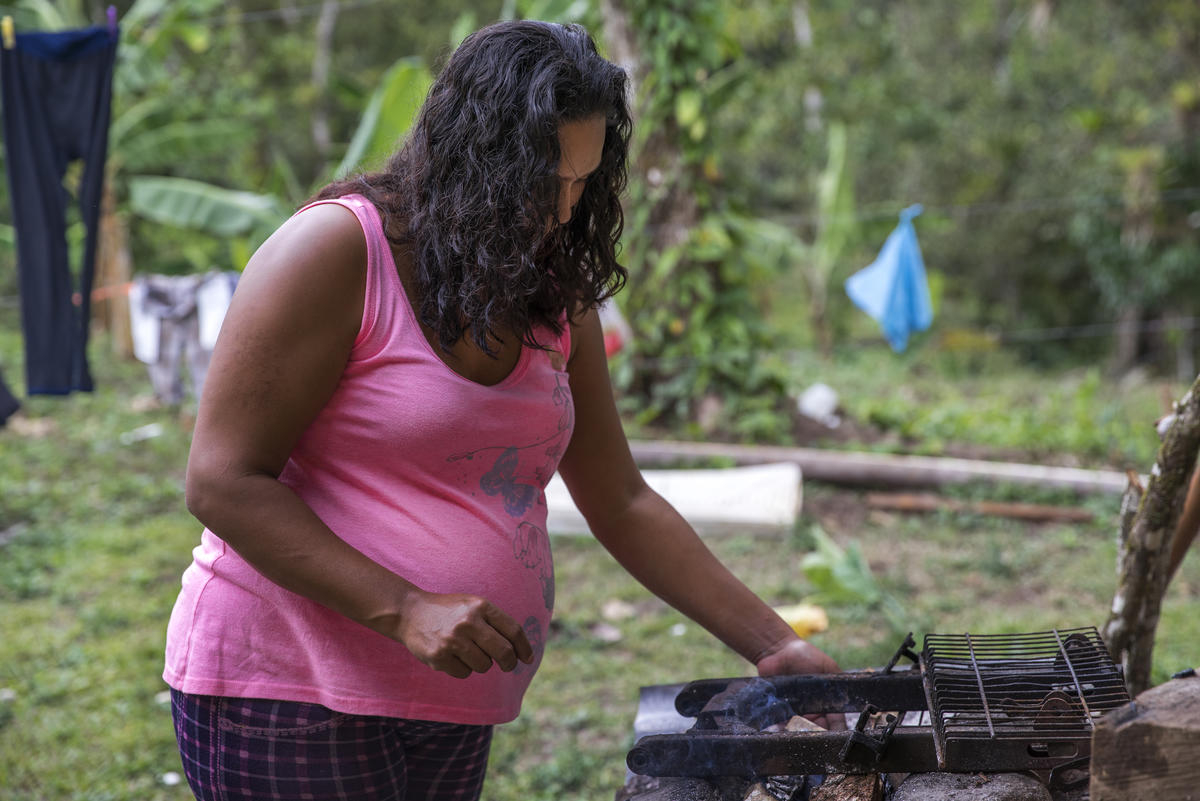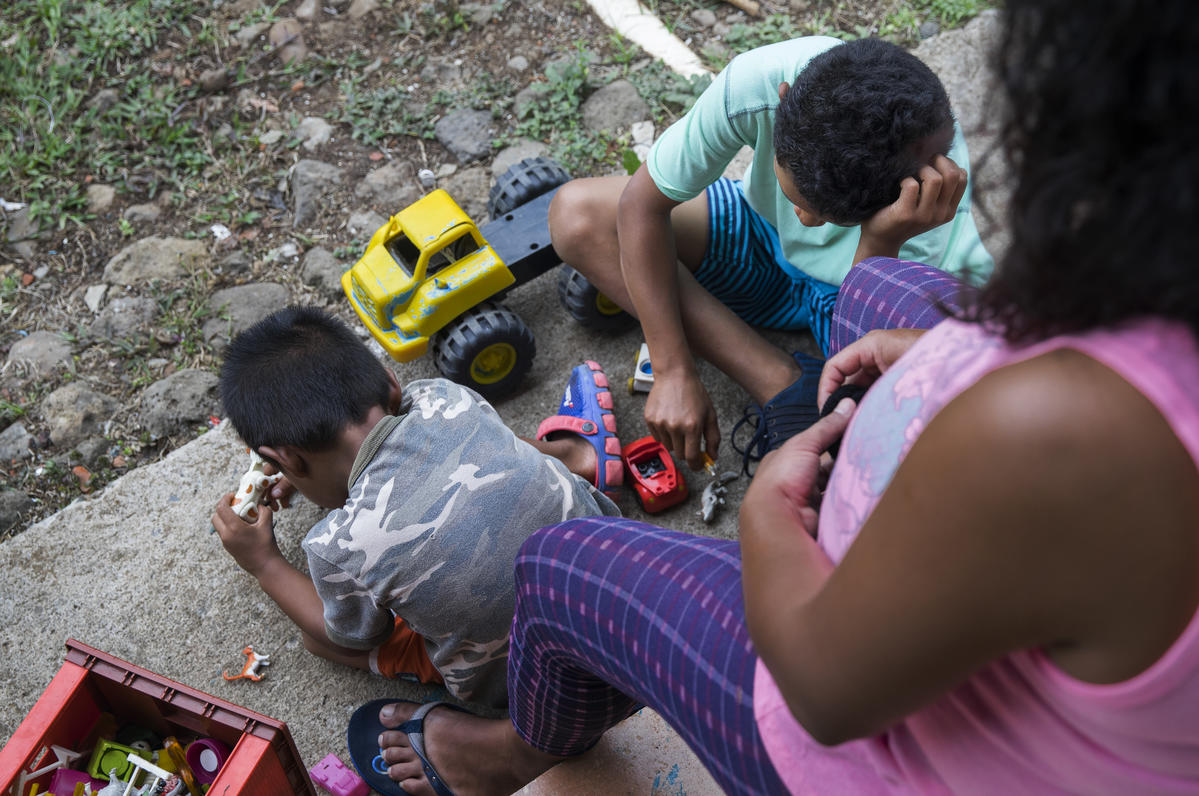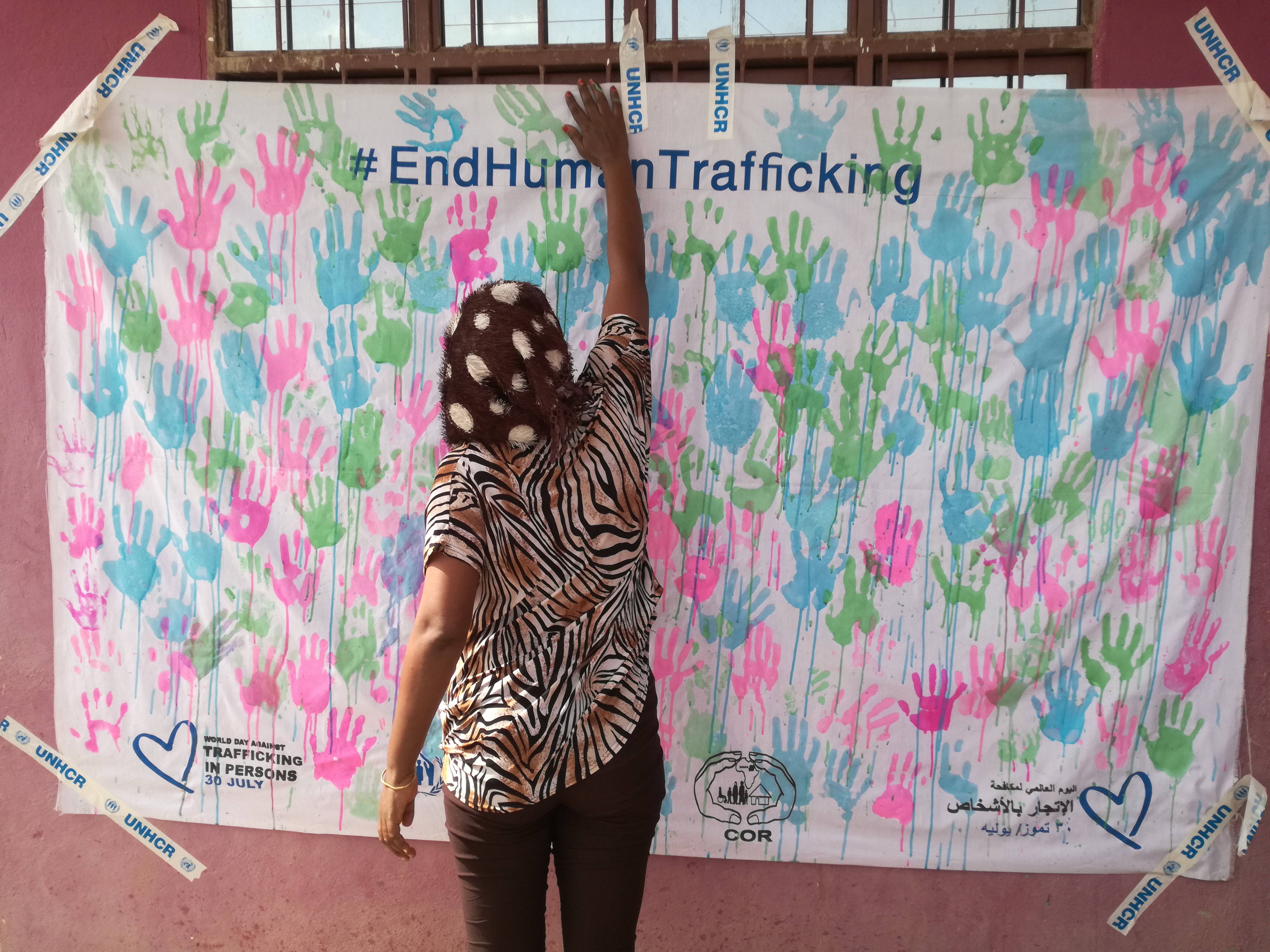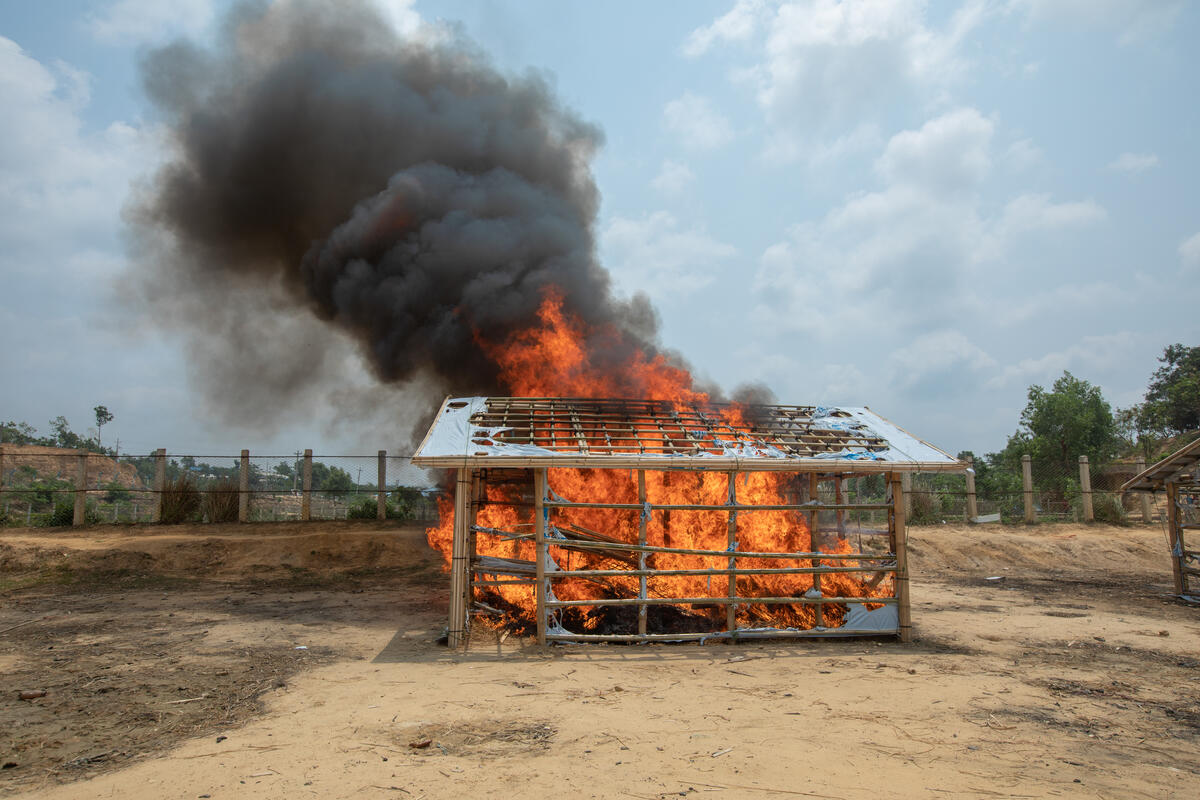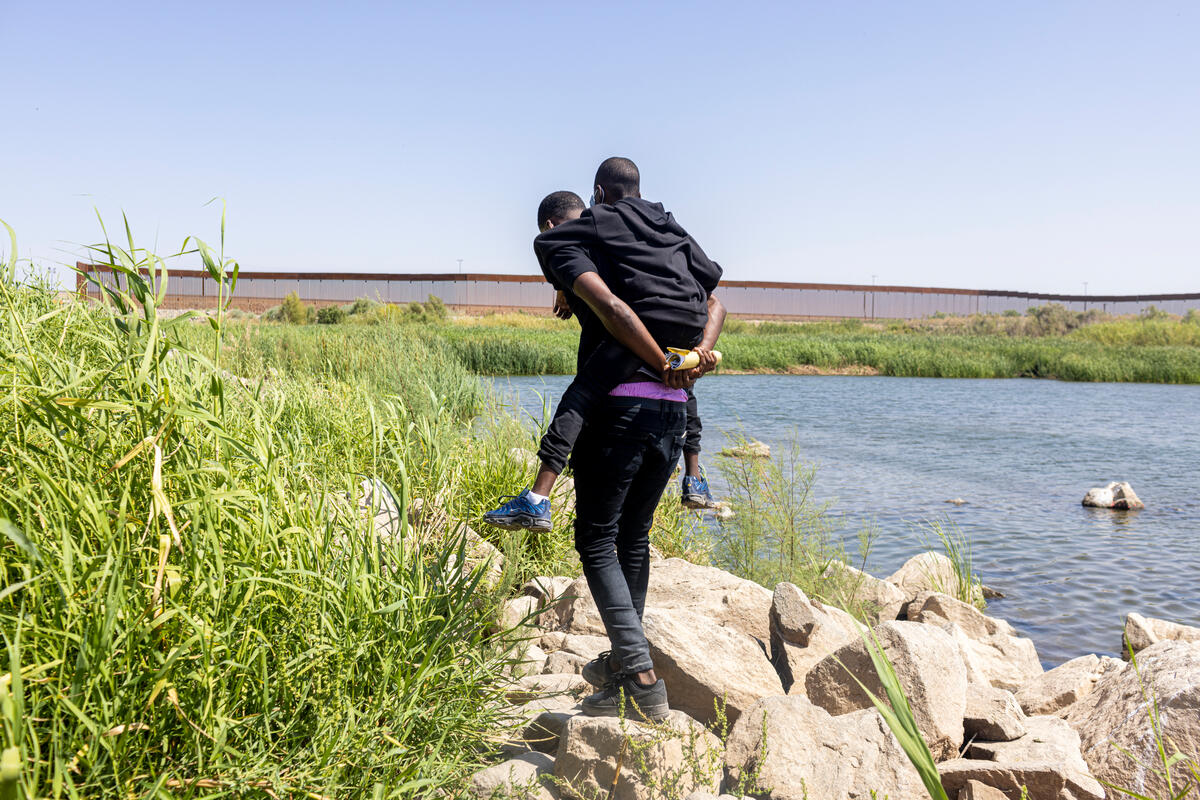A year into sociopolitical crisis, thousands of Nicaraguans continue to flee
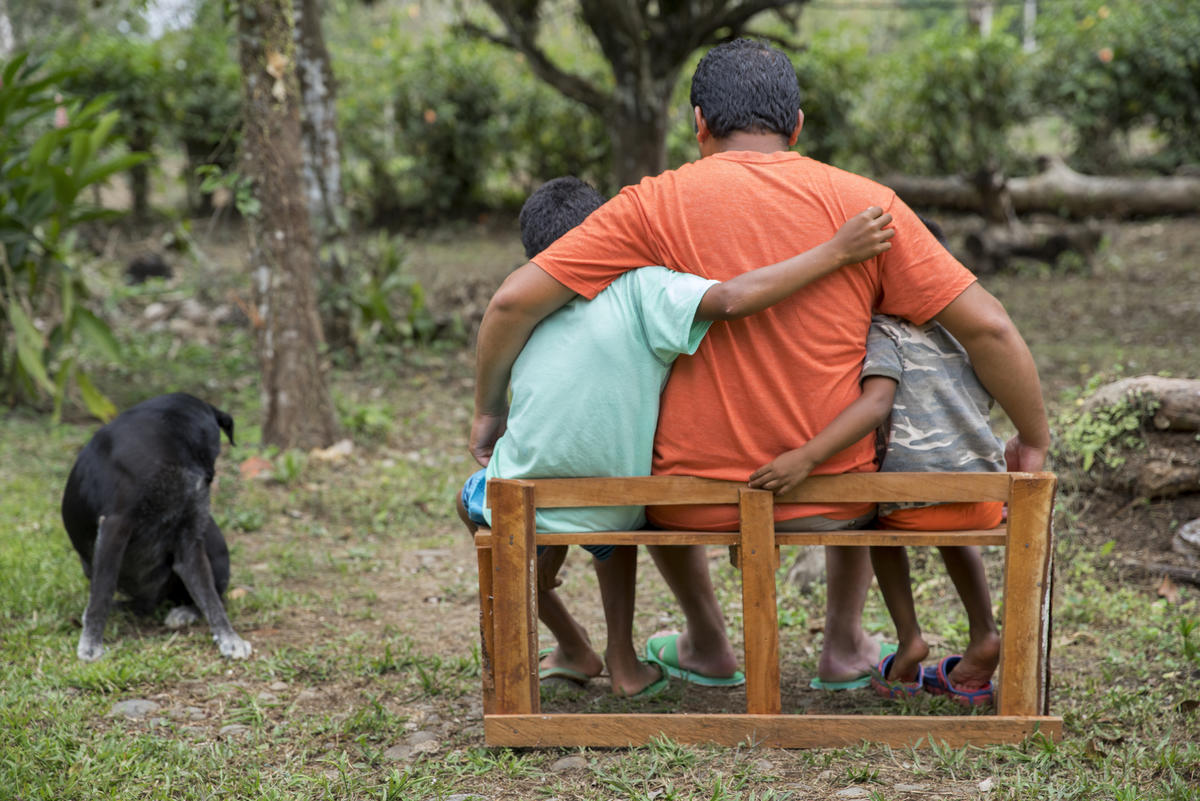
A year into sociopolitical crisis, thousands of Nicaraguans continue to flee
Despite having little interest in politics, Manuel* found himself caught up in the violence and persecution that erupted in Nicaragua a year ago, after the government cracked down on street protests.
"We lived with the anxiety of not knowing when they would break into the house to get us,” the farmer recalls. “We were besieged at night.”
Since April 2018, Nicaragua has been wracked by a deep sociopolitical crisis, forcing over 60,000 people to flee. As raids in search of dissidents and protesters continue, Costa Rica has been receiving over 2,000 asylum requests per month from people crossing its northern border in search of safety.
After several attacks and being tipped off that people wanted him “dead or alive,” Manuel abandoned the family's banana plantations and fled to Costa Rica with his wife, Andrea, and their two small children. "I'm sure if I go home they will hurt me," he says.
To avoid police at the official border crossing, Manuel took a small boat along the Pacific coast to Puerto Soley, entering Costa Rica informally a few days ago. Meanwhile Andrea*, 30, who was three months pregnant, slipped over the border with her two children, using a back route to avoid police.
"I'm sure if I go home they will hurt me."
"I took a muddy track through the fields, carrying my three-year-old son,” she says. “It is not easy for anyone to cross, especially a pregnant woman. The pain in my back was unbearable."
Costa Rican communities near the border with Nicaragua have few resources, so finding food and shelter is a challenge for asylum seekers. Andrea spent her first days there not knowing where she or her children would sleep or what they would eat.
After contacting the Costa Rican authorities, the family was put in touch with CENDEROS, a non-profit organization that partners with UNHCR, the UN Refugee Agency, to provide vital help to the most vulnerable Nicaraguan asylum seekers. They found the family a place to stay and food.
"At the start we just cooked over an open fire because we did not have anything, but with the help of an official at CENDEROS, we managed to get access to a kitchen," says Andrea.
Costa Rica’s support for refugees goes back decades. During the turbulent 1970s and 1980s, when civil wars roiled much of the region from El Salvador and Nicaragua to Colombia, Costa Rica remained a haven of peace, keeping its doors open to those at risk.
The small Central American country has developed exemplary systems of protection allowing refugees to thrive. It grants asylum seekers the right to work and attend schools while their petitions are processed, and allows them to appeal if the decision doesn’t go there way. However, the growing number of asylum seekers in Costa Rica has put its system under heightened strain.
"My dad suffered the war in the 80s and he felt that we were already at war again.”
UNHCR is providing support to migration and refugee authorities to increase their processing capacity and has strengthened its presence in Costa Rica’s northern border region by opening a new office in Upala that monitors and registers people entering the country, provides information and guidance on the asylum process and delivers humanitarian assistance.
While they are now safe in Costa Rica, Manuel and Andrea’s children still struggle with distressing memories from their final days in Nicaragua, when the family was hunted by gun-toting men in uniforms.
"My youngest son hugs me every time he sees the Costa Rican police because they look like the officials who attacked us. He hugs me and says that he takes care of his daddy," says Manuel as the two play with toy cars given to them by neighbours in this small agricultural community.
As Nicaraguans continue to seek asylum, thousands of families who fled to Costa Rica last year also face significant challenges. Henry* escaped with his three daughters, aged eight to 10, and his 85-year-old father, after armed groups killed their neighbour.
"My dad suffered the war in the 80s and he felt that we were already at war again,” Henry says. “We were afraid to end up as victims of violence, (and thought) we had better flee."
The family now live in a border community in an unfinished house, without windows. They sleep on improvised beds. Henry knows that the conditions of his home are not ideal, but he prefers to live there in safety rather than risk their lives returning home.
"What gives me strength is knowing that my daughters are at least studying," he says as he awaits a resolution of the crisis. "My greatest wish is that one day my three girls can go home knowing how to read," he adds.
*Names changed for protection reasons.

